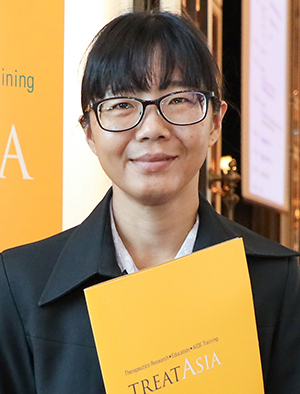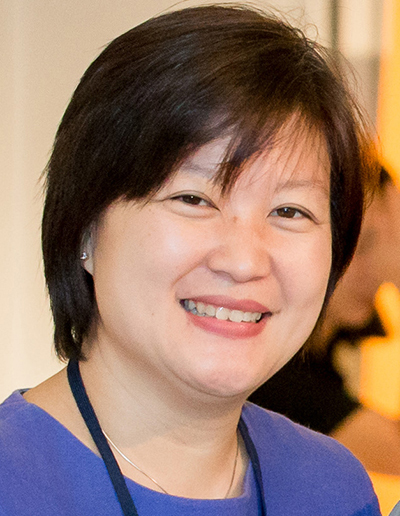amfAR’s TREAT Asia program to address key questions concerning transition from pediatric to adult care
 Dr. Linda Aurpibul, MDThere are more than five million adolescents and young adults living with HIV worldwide, many of whom acquired the virus as infants and must navigate the complex transition from pediatric to adult care. The study of pediatric and adolescent HIV has long been a focus of amfAR’s TREAT Asia program, whose pediatric HIV database, launched in 2006, today includes clinical data on more than 6,400 children and adolescents across the region.
Dr. Linda Aurpibul, MDThere are more than five million adolescents and young adults living with HIV worldwide, many of whom acquired the virus as infants and must navigate the complex transition from pediatric to adult care. The study of pediatric and adolescent HIV has long been a focus of amfAR’s TREAT Asia program, whose pediatric HIV database, launched in 2006, today includes clinical data on more than 6,400 children and adolescents across the region.
The database will underpin a new 18-month study being supported by a grant from ViiV Healthcare.
Thai-PAPAYA (Program to Actively follow Perinatal Adolescents and Young Adults living with HIV) will document long-term HIV treatment outcomes for Thai young adults aged 18-25 as well as mental health, sexual and reproductive health, behavioral outcomes, and risks of age-related non-communicable diseases, such as hypertension and diabetes.
 Thanyawee Puthanakit, MD“We are excited for this opportunity to better understand the care and outcomes of young adults who have grown up with HIV after they transition to adult care,” said Dr. Annette Sohn, Vice President and Director of TREAT Asia.
Thanyawee Puthanakit, MD“We are excited for this opportunity to better understand the care and outcomes of young adults who have grown up with HIV after they transition to adult care,” said Dr. Annette Sohn, Vice President and Director of TREAT Asia.
Co-led by Principal Investigators Dr. Linda Aurpibul, of the Research Institute for Health Sciences (RIHES), Chiang Mai University, and Dr. Sohn, the Thai-PAPAYA study aims to build a comprehensive platform linking treatment outcome data across national-level data sources. Results will inform care and policy to more effectively address the unique needs of these young adults.
“There are limited data on the challenges adolescents face as they transition into adult care,” said Dr. Serufusa Sekidde, Global Medical Lead – Paediatrics, ViiV Healthcare. “We are delighted to support this Thai-PAPAYA cohort which offers a unique opportunity to develop this data in the Asia region and shape future care and management.”